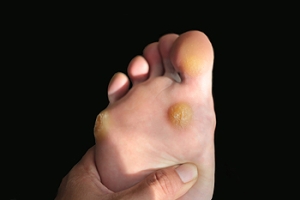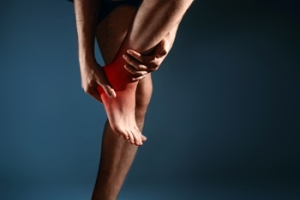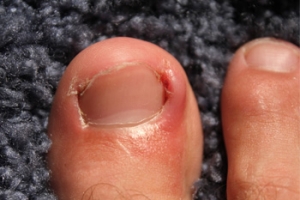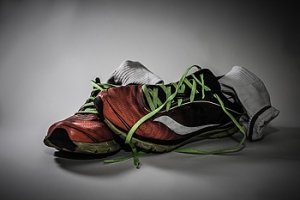
The Benefits of Having Foot Surgery Performed
 There are several reasons why having foot surgery performed may benefit the overall health of the feet. These may include restoring mobility in the foot or ankle, relieving pain that may be present, or possibly correcting a foot deformity. Removing an ingrown toenail may be an option if the nail is severely infected. If you have a bunion that is causing extreme pain and discomfort, bunion surgery may be an option to think about if other treatments have not been successful. Patients who have sustained an injury to the joints of the ankle may consider having ankle replacement surgery performed. This may be used as a last resort to regain mobility and strength in the ankle and surrounding areas. If you have foot conditions, which may benefit by having surgery performed, it is advised to consult with a podiatrist who can properly assist you.
There are several reasons why having foot surgery performed may benefit the overall health of the feet. These may include restoring mobility in the foot or ankle, relieving pain that may be present, or possibly correcting a foot deformity. Removing an ingrown toenail may be an option if the nail is severely infected. If you have a bunion that is causing extreme pain and discomfort, bunion surgery may be an option to think about if other treatments have not been successful. Patients who have sustained an injury to the joints of the ankle may consider having ankle replacement surgery performed. This may be used as a last resort to regain mobility and strength in the ankle and surrounding areas. If you have foot conditions, which may benefit by having surgery performed, it is advised to consult with a podiatrist who can properly assist you.
Foot surgery is sometimes necessary to treat a foot ailment. To learn more, contact one of our podiatrists of PA Foot & Ankle Associates. Our doctors will assist you with all of your foot and ankle needs.
When Is Surgery Necessary?
Foot and ankle surgery is generally reserved for cases in which less invasive, conservative procedures have failed to alleviate the problem. Some of the cases in which surgery may be necessary include:
- Removing foot deformities like bunions and bone spurs
- Severe arthritis that has caused bone issues
- Cosmetic reconstruction
What Types of Surgery Are There?
The type of surgery you receive will depend on the nature of the problem you have. Some of the possible surgeries include:
- Bunionectomy for painful bunions
- Surgical fusion for realignment of bones
- Neuropathy decompression surgery to treat nerve damage
Benefits of Surgery
Although surgery is usually a last resort, it can provide more complete pain relief compared to non-surgical methods and may allow you to finally resume full activity.
Surgical techniques have also become increasingly sophisticated. Techniques like endoscopic surgery allow for smaller incisions and faster recovery times.
If you have any questions please feel free to contact one of our offices located in Allentown, Easton, Northampton, and Chew Street in Allentown, PA . We offer the newest diagnostic and treatment technologies for all your foot and ankle needs.
Foot and Ankle Surgery
When conservative, noninvasive methods prove ineffective, surgery may be selected as the next course of action for the treatment of your foot or ankle condition. A wide number of foot and ankle surgical procedures exist, and it is up to your podiatrist to determine which intervention will be most appropriate and helpful for your case. Some surgical procedures include bunion surgery, fusion, hammertoe surgery, heel spur surgery, metatarsal surgery, nail surgery, neuroma surgery, reconstructive surgery, skin surgery, and tendon surgery. Typically, surgery is turned to as a definitive way to alleviate excessive pain or discomfort and to return your foot to full mobility.
Regardless of the location on the body, all surgical procedures require preoperative testing and examination to ensure the surgery’s success and preferred outcome. A review of your medical history and medical conditions will take place, as will an evaluation of any current diseases, illnesses, allergies, and medications. Tests such as blood studies, urinalyses, EKG, X-rays, and blood flow studies may be ordered. Because the procedure involves the foot and/or ankle, the structures of your feet while walking may also be observed by your podiatrist.
Care post-surgery will depend on the type of surgical procedure performed. Typically, all postoperative care involves rest, ice, compression, and elevation. To improve and ensure a safe recovery, your foot and ankle surgeon may also employ the use of bandages, splints, surgical shoes, casts, crutches, or canes. He will also determine if and when you can bear weight. A timely and thorough recovery is a priority for both you and your podiatrist, and carefully following postoperative instructions can help achieve this.
How Plantar Warts Are Different from Other Warts
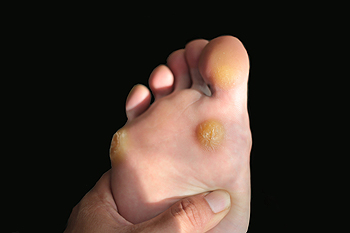 Warts are very common and come in many different forms. Plantar warts, also known as verrucae warts, differ from most other warts for various reasons. They only form on the sole of the foot and are a result of the human papillomavirus (HPV). They can easily be caught in places where there is moisture such as, locker rooms, pool areas, or saunas. Unlike most warts, plantar warts grow inward instead of outward. They plant themselves in the thick skin on the bottom of the foot, which can result in discomfort or pain. Discomfort and pain will increase when pressure is applied to the foot. Visually, they are flat, circular and have a small dent in the middle. Usually, they are dry with a black spot in the middle. If you think you might have plantar warts on the sole of your foot, then it is suggested you speak with a podiatrist in order to learn about treatment options.
Warts are very common and come in many different forms. Plantar warts, also known as verrucae warts, differ from most other warts for various reasons. They only form on the sole of the foot and are a result of the human papillomavirus (HPV). They can easily be caught in places where there is moisture such as, locker rooms, pool areas, or saunas. Unlike most warts, plantar warts grow inward instead of outward. They plant themselves in the thick skin on the bottom of the foot, which can result in discomfort or pain. Discomfort and pain will increase when pressure is applied to the foot. Visually, they are flat, circular and have a small dent in the middle. Usually, they are dry with a black spot in the middle. If you think you might have plantar warts on the sole of your foot, then it is suggested you speak with a podiatrist in order to learn about treatment options.
Plantar warts can be very uncomfortable. If you need your feet checked, contact one of our podiatrists from PA Foot & Ankle Associates. Our doctors will assist you with all of your foot and ankle needs.
About Plantar Warts
Plantar warts are the result of HPV, or human papillomavirus, getting into open wounds on the feet. They are mostly found on the heels or balls of the feet.
While plantar warts are generally harmless, those experiencing excessive pain or those suffering from diabetes or a compromised immune system require immediate medical care. Plantar warts are easily diagnosed, usually through scraping off a bit of rough skin or by getting a biopsy.
Symptoms
- Lesions on the bottom of your feet, usually rough and grainy
- Hard or thick callused spots
- Wart seeds, which are small clotted blood vessels that look like little black spots
- Pain, discomfort, or tenderness of your feet when walking or standing
Treatment
- Freezing
- Electric tool removal
- Laser Treatment
- Topical Creams (prescription only)
- Over-the-counter medications
To help prevent developing plantar warts, avoid walking barefoot over abrasive surfaces that can cause cuts or wounds for HPV to get into. Avoiding direct contact with other warts, as well as not picking or rubbing existing warts, can help prevent the further spread of plantar warts. However, if you think you have developed plantar warts, speak to your podiatrist. He or she can diagnose the warts on your feet and recommend the appropriate treatment options.
If you have any questions please feel free to contact one of our offices located in Allentown, Easton, Northampton, and Chew Street in Allentown, PA . We offer the newest diagnostic and treatment technologies for all your foot and ankle needs.
All About Plantar Warts
Plantar warts are warts that are only found on the feet, hence the term “plantar”, which means “relating to the foot.” They are caused by the human papillomavirus, or HPV, and occur when this virus gets into open wounds on the feet. The warts themselves are hard bumps on the foot. They are easily recognizable, mostly found on the heels or ball of the foot. Plantar warts are non-malignant, but they can cause some pain, discomfort, and are often unsightly. Removing them is a common step toward treating them.
Plantar warts can cause some pain while standing, sometimes felt as tenderness on the sole of your foot. Unless the wart has grown into the foot behind a callus, you will be able to see the fleshy wart. A podiatrist should only be consulted if there is an excessive amount of pain. Plantar warts are not cancerous or dangerous, but they can affect your walking and continually reappear. Anyone who suffers from diabetes or a compromised immune system disease should seek out care immediately.
Podiatrists are easily able to diagnose plantar warts. They usually scrape off a tiny bit of the rough skin to make tiny blood clots visible and examine the inside of warts. However, a biopsy can be done if the doctor is not able to diagnose them from simply looking at them. Although plantar warts usually do not require an excessive amount of treatment, there are ways to go about removing them. A common method is to freeze them off using liquid nitrogen, removing them using an electrical tool, or burning them off via laser treatment. For a less invasive treatment option, topical creams can be used through a doctor’s prescription. This treatment method takes more time, however. Keep the wart covered for protection in between daily treatments.
The best way to avoid developing plantar warts is to avoid walking barefoot in public places. Avoid this especially if you have open sores or cuts on your feet. It is also important to avoid direct contact with warts in general, as they are highly contagious.
Causes of Ankle Pain
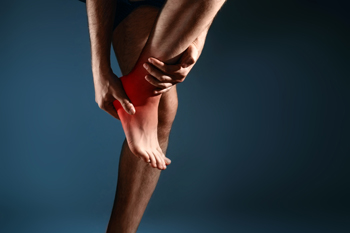 Research has indicated there are several different forms of ankle pain. Many people will experience some type of ankle pain throughout their lives, and this may come from a variety of reasons. These may include medical conditions such as arthritis, or from an injury. Ankle sprains are considered to be one of the most common forms of ankle pain, and this typically occurs when the ligaments in the ankle and surrounding areas are overstretched. This may happen as a result of tripping or falling, which may cause the ankle to roll inward toward the ground. Other reasons patients may have ankle pain may include infections in the joints of the ankle, nerve damage, or blood vessels that may be blocked. When ankle pain is first noticed, it’s important to rest the foot by taking the weight off of it. If it appears swollen, elevation may bring a mild form of relief. Please consult with a podiatrist who can properly guide you toward feeling better.
Research has indicated there are several different forms of ankle pain. Many people will experience some type of ankle pain throughout their lives, and this may come from a variety of reasons. These may include medical conditions such as arthritis, or from an injury. Ankle sprains are considered to be one of the most common forms of ankle pain, and this typically occurs when the ligaments in the ankle and surrounding areas are overstretched. This may happen as a result of tripping or falling, which may cause the ankle to roll inward toward the ground. Other reasons patients may have ankle pain may include infections in the joints of the ankle, nerve damage, or blood vessels that may be blocked. When ankle pain is first noticed, it’s important to rest the foot by taking the weight off of it. If it appears swollen, elevation may bring a mild form of relief. Please consult with a podiatrist who can properly guide you toward feeling better.
Ankle pain can be caused by a number of problems and may be potentially serious. If you have ankle pain, consult with one of our podiatrists from PA Foot & Ankle Associates. Our doctors will assess your condition and provide you with quality foot and ankle treatment.
Ankle pain is any condition that causes pain in the ankle. Due to the fact that the ankle consists of tendons, muscles, bones, and ligaments, ankle pain can come from a number of different conditions.
Causes
The most common causes of ankle pain include:
- Types of arthritis (rheumatoid, osteoarthritis, and gout)
- Ankle sprains
- Broken ankles
- Achilles tendonitis
- Achilles tendon rupture
- Stress fractures
- Bursitis
- Tarsal tunnel syndrome
- Plantar fasciitis
Symptoms
Symptoms of ankle injury vary based upon the condition. Pain may include general pain and discomfort, swelling, aching, redness, bruising, burning or stabbing sensations, and/or loss of sensation.
Diagnosis
Due to the wide variety of potential causes of ankle pain, podiatrists will utilize a number of different methods to properly diagnose ankle pain. This can include asking for personal and family medical histories and of any recent injuries. Further diagnosis may include sensation tests, a physical examination, and potentially x-rays or other imaging tests.
Treatment
Just as the range of causes varies widely, so do treatments. Some more common treatments are rest, ice packs, keeping pressure off the foot, orthotics and braces, medication for inflammation and pain, and surgery.
If you have any questions, please feel free to contact one of our offices located in Allentown, Easton, Northampton, and Chew Street in Allentown, PA . We offer the newest diagnostic and treatment technologies for all your foot care needs.
Ankle Pain
Pain experienced in the ankle can be caused by a multitude of conditions. While the most common cause is an ankle sprain, other possible problems can include arthritis, gout, ankle instability, an ankle fracture, nerve compression, or tendinitis. In more serious cases, ankle pain can be a sign of improper alignment of the foot or an infection.
Ankle pain can often be accompanied by symptoms such as redness, swelling, stiffness, and warmth in the affected area. Pain can be described differently depending on the condition: short, stabbing pain and a dull ache are some examples. If such symptoms are persistent and do not improve after time, be sure to schedule an appointment with your local podiatrist.
Depending on the condition causing your ankle pain, different treatments may be prescribed by your podiatrist. For ankle sprains, the first step in treatment involves rest, ice, elevation, and compression. Be sure to avoid placing pressure on the ankle, use an ice pack several times a day, and use a compression bandage and elevation to reduce swelling. Other, more serious conditions may require the assistance of certain drugs and medications such as nonsteroidal anti-inflammatory drugs (NSAIDs), physical therapy, or even cortisone injections.
Depending on the severity of your ankle pain and the condition behind it, recovery from ankle pain may take some time.
Consult with your foot and ankle doctor to best determine the cause of your ankle pain and the appropriate treatment.
Symptoms of an Ingrown Toenail
 If the nail on the big toe should grow into the surrounding skin, you may have what is known as an ingrown toenail. Common reasons why this painful condition should occur may include improper nail trimming and wearing shoes which do not fit correctly. Some patients have toes that are deformed, and this can exert excess pressure on the nail. There are several symptoms that may accompany this ailment, including redness, tenderness, swelling, or a possible discharge coming from the affected nail. Soaking the nail in warm water may lead to partial relief, in addition to gently massaging the nail and surrounding area. If you are afflicted with diabetes or nerve damage, it is important to speak to a podiatrist as quickly as possible who can aid in treating the nail and possibly preventing an infection from developing.
If the nail on the big toe should grow into the surrounding skin, you may have what is known as an ingrown toenail. Common reasons why this painful condition should occur may include improper nail trimming and wearing shoes which do not fit correctly. Some patients have toes that are deformed, and this can exert excess pressure on the nail. There are several symptoms that may accompany this ailment, including redness, tenderness, swelling, or a possible discharge coming from the affected nail. Soaking the nail in warm water may lead to partial relief, in addition to gently massaging the nail and surrounding area. If you are afflicted with diabetes or nerve damage, it is important to speak to a podiatrist as quickly as possible who can aid in treating the nail and possibly preventing an infection from developing.
Ingrown toenails can become painful if they are not treated properly. For more information about ingrown toenails, contact one of our podiatrists of PA Foot & Ankle Associates. Our doctors can provide the care you need to keep you pain-free and on your feet.
Ingrown Toenails
Ingrown toenails occur when a toenail grows sideways into the bed of the nail, causing pain, swelling, and possibly infection.
Causes
- Bacterial infections
- Improper nail cutting such as cutting it too short or not straight across
- Trauma to the toe, such as stubbing, which causes the nail to grow back irregularly
- Ill-fitting shoes that bunch the toes too close together
- Genetic predisposition
Prevention
Because ingrown toenails are not something found outside of shoe-wearing cultures, going barefoot as often as possible will decrease the likeliness of developing ingrown toenails. Wearing proper fitting shoes and using proper cutting techniques will also help decrease your risk of developing ingrown toenails.
Treatment
Ingrown toenails are a very treatable foot condition. In minor cases, soaking the affected area in salt or antibacterial soaps will not only help with the ingrown nail itself, but also help prevent any infections from occurring. In more severe cases, surgery is an option. In either case, speaking to your podiatrist about this condition will help you get a better understanding of specific treatment options that are right for you.
If you have any questions please feel free to contact one of our offices located in Allentown, Easton, Northampton, and Chew Street in Allentown, PA . We offer the newest diagnostic and treatment technologies for all your foot and ankle needs.
Ingrown Toenails
Ingrown toenails (onychocryptosis) are a common foot ailment and it is very unpleasant to experience. The condition is caused by an increase in pressure from the ingrowth of the nail edge into the skin of the toe. Ingrown toenails commonly cause pain in those who experience them. In some cases, the skin surrounding the ingrown toenail may break which may lead bacteria to enter through and cause an infection. Common symptoms of this ailment include pain, redness, swelling, and warmth around the toe.
An imbalance between the size of the nail and the enlargement of the nail skin edge causes ingrown toenails. This condition is often caused by improperly trimming the toenails. If you are trying you cut your nails, you should always try to trim straight across instead of in a rounded shape. Ingrown toenails can also be an inherited condition and they may also be caused by improper shoe fitting.
Another common cause of the condition is wearing shoes that are either too small or too large. Other causes include poor foot hygiene, obesity, diabetes, arthritis, edema, and fungal infections. There are many risk factors that may make a person more likely to develop an ingrown toenail. Athletes who play “stop and start” sports such as tennis, soccer, and basketball are most likely to have ingrown toenails.
People who have diabetes, a compromised immune system, or poor circulation should immediately seek care from a podiatrist if they have an ingrown toenail. It is also recommended to seek professional assistance if at-home remedies are not successful within a week or if there is persistent pain.
Different Types of Running Shoes
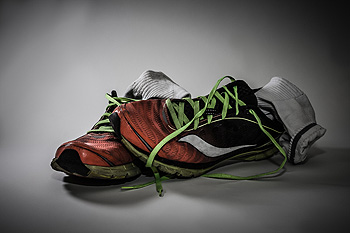 Choosing the correct running shoe is crucial in protecting the feet while pursuing an active hobby or sport. One of the first things to do is to determine what type of running style you intend to pursue, as this can aid in selecting the shoes that are most comfortable and supportive for you. There are shoes specifically designed for different types of running, and these can include jogging on hard surfaces, running on trails, which may have rocks and other obstacles, or running where balance is required. Research has shown that it may be beneficial to recognize any patterns in how the shoes are wearing. This may be helpful in determining which type of shoe is best for you. If you would like additional information on how to choose a running shoe that is right for your feet and needs, speak to a podiatrist who can properly guide you.
Choosing the correct running shoe is crucial in protecting the feet while pursuing an active hobby or sport. One of the first things to do is to determine what type of running style you intend to pursue, as this can aid in selecting the shoes that are most comfortable and supportive for you. There are shoes specifically designed for different types of running, and these can include jogging on hard surfaces, running on trails, which may have rocks and other obstacles, or running where balance is required. Research has shown that it may be beneficial to recognize any patterns in how the shoes are wearing. This may be helpful in determining which type of shoe is best for you. If you would like additional information on how to choose a running shoe that is right for your feet and needs, speak to a podiatrist who can properly guide you.
If you are a runner, wearing the right running shoe is essential. For more information, contact one of our podiatrists from PA Foot & Ankle Associates. Our doctors can provide the care you need to keep you pain-free and on your feet.
Choosing the Right Running Shoe for Your Foot Type
To increase performance and avoid the risk of injury, it is important to choose the right running shoe based on your foot type. The general design of running shoes revolves around pronation, which is how the ankle rolls from outside to inside when the foot strikes the ground.
- Neutral runners are able to choose from a wide variety of shoes, including minimalist shoes or even going barefoot.
- Runners who overpronate, or experience an over-abundance of ankle rolling, should choose shoes that provide extra motion control and stability.
- Runners who underpronate, or supinate, have feet that have high arches and lack flexibility, preventing shock absorption. They require shoes with more flexibility and cushion.
If you have any questions please feel free to contact one of our offices located in Allentown, Easton, Northampton, and Chew Street in Allentown, PA . We offer the newest diagnostic and treatment technologies for all your foot and ankle needs.
Choosing the Right Running Shoe for Your Foot Type
Running may seem like a simple to do. However, running is actually a complex movement that puts stress on the ligaments, bones, and joints of the body. Selecting the correct running shoe is important for increasing performance and avoiding risk of injury. Running shoes should be selected based on your foot type. Considerations such as trail versus road shoes are important. Your foot type dictates the degree of cushioning, stability and motion control you require. The most accurate way to learn your foot type is to visit a local shop that specializes in running shoes. Professionals can measure your arch type, stride and gait and help you with your shoe needs.
The design of running shoes is created around the idea of pronation. Pronation is the natural rolling movement of your ankle from the outside to inside when your foot strikes the ground. If you run properly you strike the ground on the outside of your heel and roll in the direction of your big toe before pushing off once more. Pronation is beneficial because it assists the lower half of your body in absorbing shock and storing energy. Those considered neutral runners pronate correctly and do not need running shoes that help correct their form. Neutral runners can choose from a wide variety of shoes, including barefoot or minimal types. However, those who have arch problems or who adopt an incorrect form while running may experience too much or too little pronation. They may require running shoes that offer additional support.
Those who overpronate experience an over-abundance of ankle rolling. Even while standing, those who severely overpronate display ankles that are angled inward. It is not uncommon for them to have flat feet or curved legs. The tendency to overpronate may cause many injuries. Areas that tend to become injured are the knees, ankles, and Achilles tendon. If you find that you have a tendency to overpronate, you should look at shoes that provide extra stability and motion-control. Motion-control shoes are straight and firm. Shoes of this type do not curve at the tip. The restricted flexibility along the middle of the shoe prohibits the foot from rolling too far inward as your foot strikes the ground.
A less common problem is underpronation. Underpronation, also called supination, is when the feet are unable to roll inward during landing. Those who underpronate have feet that lack flexibility and high arches. This prevents any kind of shock absorption, even though it does place less rotational stress on ankles and knees. This added force can cause fractures, ligament tears, and muscle strains because the legs are trying to compensate for the impact. Those who underpronate need shoes with more cushioning and flexibility. If you have a tendency to underpronate, selecting stability or motion-control shoes may cause you more problems by continuing to prevent pronation.

